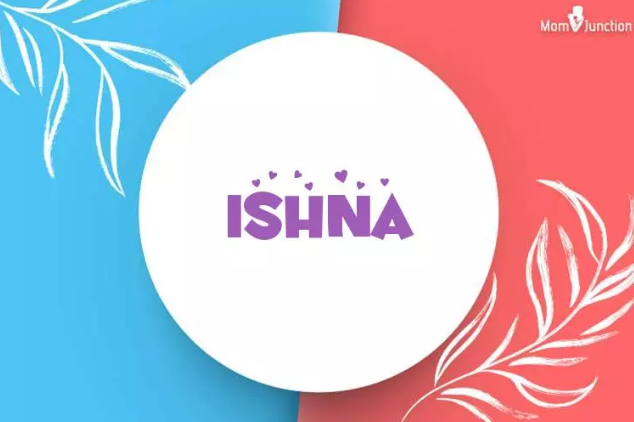Introduction to the Meaning of
Have you ever wondered about the beauty and depth of names? Each one carries a story, a history, or even a cultural significance. Today, we dive into the enchanting world of “Ishna meaning Dakota,” particularly its meaning in Dakota culture. This name is not just a combination of letters; it encapsulates rich traditions and values that date back generations. Join us as we unravel the fascinating layers behind Ishna and explore what makes this name truly special.
The Origin and History of the Name
The name Ishna has roots deeply embedded in Dakota culture. It traces back to the Lakota language, a dialect of the Sioux Nation. In this context, Ishna translates to “the beauty” or “something beautiful.”
Historically, names carry profound meanings and serve as a reflection of individual identity in Native American communities. The selection of names often draws from nature or personal attributes.
Ishna is not just a name; it’s part of storytelling traditions that celebrate heritage and connection to the land. Over generations, it has been passed down, embodying values cherished by families.
As societies evolve, so do names like Ishna. They adapt while retaining their essence—a testament to cultural resilience and pride among Dakota people. This enduring legacy makes the name rich with history and significance for those who bear it today.
Cultural Significance of
The name Ishna holds deep cultural significance within the Dakota community. Rooted in Native American traditions, it embodies a connection to nature and spirituality. Often associated with meanings like “to be beautiful” or “light,” Ishna reflects values cherished by the Dakota people.
Names in many Indigenous cultures are more than mere labels; they carry stories and ancestral wisdom. They symbolize identity and belonging, bridging generations of heritage.
Ishna is also linked to the concept of harmony within oneself and one’s environment—an essential aspect of Dakota philosophy. Such names serve as reminders of personal journeys while honoring collective histories.
In contemporary contexts, parents may choose this name for its rich meaning, hoping to instill pride in their children’s roots while fostering an appreciation for their cultural legacy. The enduring popularity of Ishna highlights its importance beyond just a name—it signifies hope, beauty, and tradition intertwined with everyday life.
Common Uses and Variations of the Name
“Ishna meaning Dakota,” is a name that resonates across various cultures, particularly in Native American communities. It’s often used for girls, symbolizing beauty and strength.
In addition to its traditional roots, Ishna has gained popularity as a modern first name. Many parents are drawn to its unique sound and cultural significance. “Ishna means Dakota,” Variations like “Ishnah” or “Isna” have emerged, offering alternative spellings while retaining the original essence.
The name also finds relevance in literature and art, where characters bearing the name embody resilience and wisdom.
Some people choose to adapt it into nicknames such as “Izzy” or “Nina,” making it more accessible in everyday use. These variations help bridge cultural heritage with contemporary life, showcasing how names can evolve over time yet keep their core meaning intact.
Famous People with the Name
Ishna may not be a widely recognized name, but it has graced some notable individuals. One prominent figure is Ishna Kaur, an emerging artist known for her vibrant paintings that reflect cultural narratives. Her work has been featured in various art exhibitions across the country.
In addition to artists, there are athletes with this unique name. Ishna Patel made headlines as a talented young gymnast who excels in national competitions.
The versatility of the name spans beyond just these figures; it carries an air of uniqueness and artistry. Each person contributes to redefining what it means to bear the name Ishna, infusing their talents into diverse fields like arts and sports.
These examples illustrate how names can resonate within different contexts while shaping individual identities uniquely.
How to Pronounce and Spell
Pronouncing “Ishna” can be straightforward once you get the hang of it. The name is typically pronounced as “ISH-nah.”
The emphasis is on the first syllable, which should sound crisp and clear. The second syllable flows gently, almost like a soft whisper.
When spelling “Ishna,” it’s essential to remember that there’s an ‘I’ at the beginning followed by ‘s’, then ‘h’, and ending with ‘n’ and ‘a.’ This makes it distinct in both appearance and sound.
Common misspellings might occur due to phonetic misinterpretations or variations like “Isna.” However, sticking to its original form ensures cultural respect for its roots.
Using this pronunciation and spelling will help keep communication accurate when discussing Ishna’s significance within Dakota culture.
Conclusion
The name Ishna holds a unique place in the Dakota language and culture. Its meaning reflects deep roots in the heritage of Native American tribes. “Ishna meaning Dakota,” Understanding its origin can provide valuable insights into the traditions and values that have shaped Dakota society.
The cultural significance of Ishna extends beyond just a name; it represents an identity, a connection to ancestry, and a sense of community among those who carry it. Variations of this name may exist across different regions or tribes, showcasing how fluid language can be while still retaining core meanings.
Famous individuals bearing the name might inspire others to embrace their heritage proudly. Their contributions highlight the importance of names like Ishna in shaping personal stories within broader narratives.
For anyone looking to appreciate or use this beautiful name, knowing how to pronounce and spell it correctly is essential. This ensures respect for its origins while fostering connections with those familiar with its history.
Names carry weight and meaning far beyond mere labels. They represent experiences, histories, and cultures waiting to be explored further by anyone interested in learning more about them.




